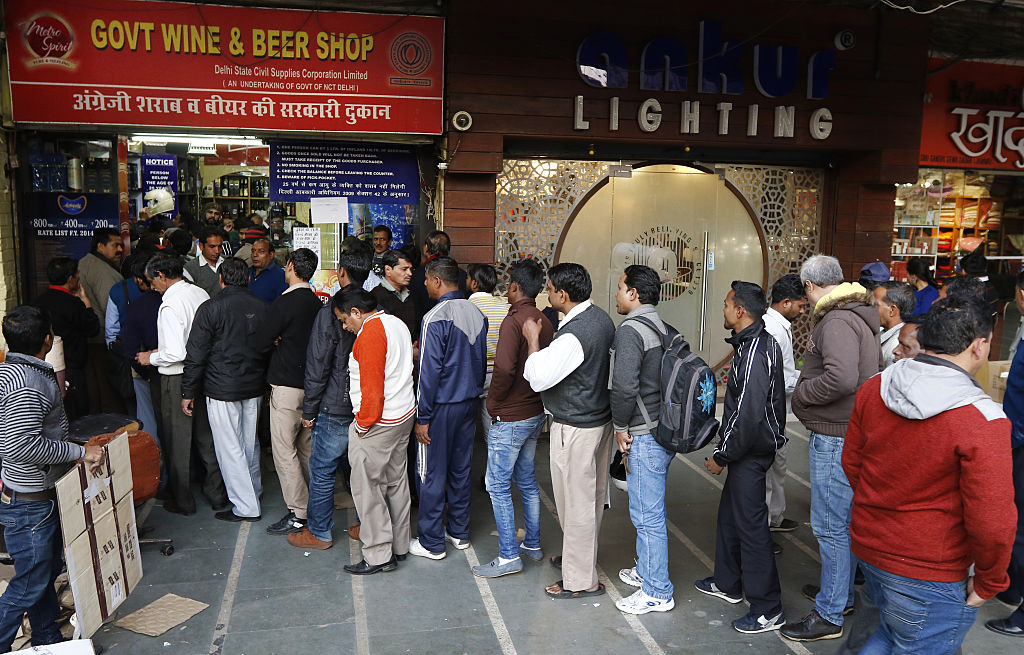The Delhi government’s excise policy for 2021-22 caused a revenue loss of over Rs 2,000 crore, according to a Comptroller and Auditor General (CAG) report tabled in the Delhi Assembly on Tuesday.
The report, titled “Performance Audit on Regulation and Supply of Liquor in Delhi,” examines the functioning of the Delhi Excise Department over four years, from 2017-18 to 2020-21, with a specific focus on the 2021-22 excise policy.
The policy was later withdrawn by the Aam Aadmi Party (AAP) government following allegations of corruption. Senior party leaders, including then-Chief Minister Arvind Kejriwal and Deputy Chief Minister Manish Sisodia, were arrested by the Enforcement Directorate and Central Bureau of Investigation (CBI) in connection with the case.
The CAG audit highlighted multiple discrepancies in the monitoring and regulation of liquor supply in Delhi, stating that these shortcomings contributed to significant revenue losses. The total financial impact of these discrepancies is estimated at Rs. 2,026.91 crore.
One of the key findings of the report was the failure to enforce Rule 35 of the Delhi Excise Rules, 2010, which prohibits related parties from holding multiple licenses. The audit found that common directorships existed among entities holding different categories of licenses, leading to potential conflicts of interest and monopolistic practices.
The CAG report also flagged issues in the pricing and sale of liquor, particularly regarding the Ex-Distillery Price (EDP). The Excise Department allowed manufacturers and wholesalers (L1 licensees) to declare their EDP without adequate oversight, leading to manipulation of prices and a decline in sales, which ultimately resulted in a loss of excise revenue.
The Audit observed varying EDP in various States for liquor supplied by same manufacturer unit. Further, this discretion allowed L1 licensee to manipulate prices of liquor to its own advantage, through increase in EDP. Analysis of pricing and sale of a few brands revealed that discretionary EDP led to decline in sales and consequent loss in excise revenue.
The audit further criticized the department’s inadequate quality control measures, citing numerous instances where test reports for liquor brands did not comply with Bureau of Indian Standards (BIS) requirements. In some cases, licenses were issued despite major shortcomings in the test reports.
Also, the report identified flaws in the Excise Department’s enforcement mechanisms, with raids and inspections being described as discretionary and poorly executed. The department’s data management practices were also deemed fragmented, hindering the ability to track inventory and prevent the circulation of non-duty-paid liquor.
The audit found gaps in End to End Tracking of Inventory. The Department’s inability to ensure sale of all the liquor through scanning led to the adoption of stock reconciliation post-sale (Monthly Stock Reconciliation- MSR Gap) which was outside the scope of contract agreement. This reconciliation procedure introduced various anomalies in the sales data and undermined inventory tracking, data accuracy, regulatory effectiveness and also increased the risk of Non-Duty Paid Liquor being circulated through use of duplicate barcodes.
The CAG report also highlighted issues in the design and award of licenses under the new excise policy. It noted that the policy’s objectives of preventing monopolies and cartels were undermined by design flaws, such as the creation of retail zones that limited the number of licensees and increased the risk of monopolistic practices.
The report concluded that the implementation of the excise policy resulted in a cumulative revenue loss of approximately Rs. 2,002 crore. It called for more stringent regulation and better enforcement to prevent future losses and ensure that the policy’s objectives of curbing bootlegging and spurious liquor sales are met.
This CAG report is one of 14 pending audits that scrutinise the previous Aam Aadmi Party (AAP) government’s performance, with the excise policy being a key area of concern. The findings have raised questions about the functioning of the Delhi Excise Department and the effectiveness of the policy framework in regulating the liquor industry.
(With ANI inputs)




















